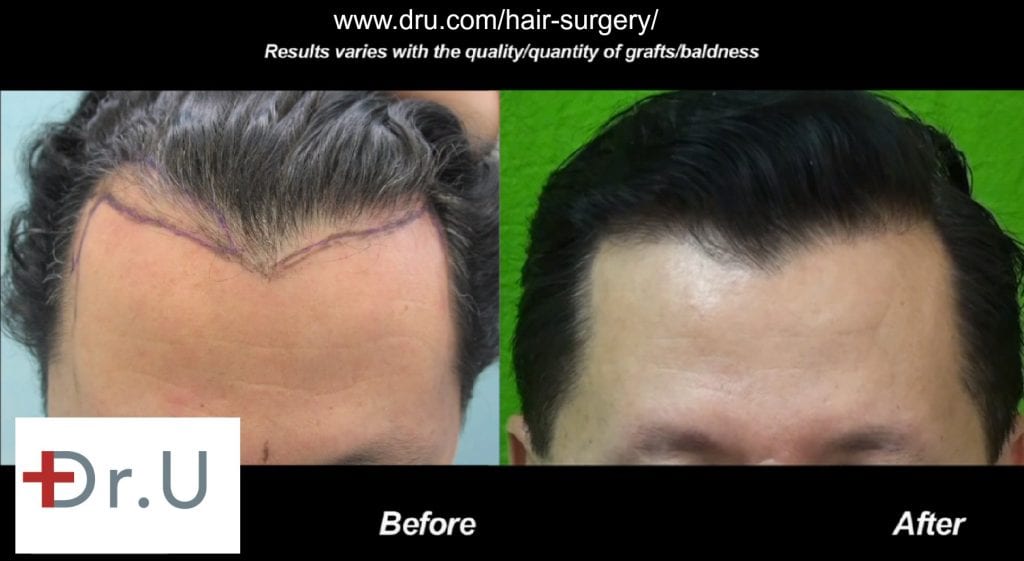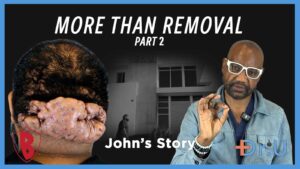Weird Hair Transplant Results Explained: After a hair transplant, there is an unrealistic expectation that once grafts are transplanted, “Voilà!” – the hair will magically transform into a head full of hair. But that’s not exactly how it works. According to Dr. Sanusi Umar, a renowned hair transplant specialist from Manhattan Beach, Calif., after a hair transplant, it is normal for it to look a little “weird.”
When it comes to hair transplant surgery, patience is needed, as the gratification or results come a little later. After all, you did have hair transplant surgery.
“But it’s worth the wait,” Dr. Umar said.
Article Update July 2022
Note that the FUE growth rate post hair transplant surgery differs from person to person. Generally, final results are seen faster in younger patients and front area transplants. On the other hand, hair transplant growth is seen slower in older patients and vertex area transplants.
VIDEO: The Truth About Why Initial Growth In Hair Transplant Is Sometimes Weird Looking – Q&A
Why is my hair growing out weird after a hair transplant?
Soon after a hair transplant procedure, the new growth may look different from the rest of the hair. Dr. Umar explains why this occurs.To learn more about Dr…
The Common FAQ
A common post-surgery question is, “My grafts have started to grow, but they are coarse and wiry and don’t match the rest of my hair. Is this normal?”
“Yes,” Dr. Umar said. “After a transplant, hair may have these characteristics to it.”
The Weird Phase
The “weird” looking hair can be alarming. But it’s not permanent. When the grafted hair doesn’t match the rest of the hair, Dr. Umar explained it’s because the follicles have been through a lot of change and need time to adjust.
In other words, within two to three weeks after the procedure, the transplanted hair will fall out to make way for new hair. And while actual long-lasting results won’t be seen for at least eight to 18 months, it’s OK if it looks different compared to the rest of the hair or if the transplanted grafts fall out.
“Don’t panic,” said Dr. Umar. “It may be coarse; it may be wiry. It may have a different shine, sheen, or color to them. These are all typically temporary. It’s not uncommon.”
Therefore, grafts are not expected to fully mature until at least 18 months of surgery. Hair that may not match the scalp’s texture is body transplanted hair, or BHT (body hair transplant), which uses hair from other body parts instead of the head. While it may have different colors and textures and grow at a different rate and maximum lengths, it too needs time to adjust. BHT is often an alternative if a patient has a depleted donor hair source.
“After two or three growth cycles [1], hair eventually smooths out and resumes its normal soft texture,” he added.
“But if you are having any complications after surgery,” he continued. “You should bring it up to your hair transplant doctor.”
Growth following a hair transplant should appear normal around months 12 to 18*

If you have further questions about “weird-looking grafts” following a hair transplant procedure, you can send your question to Dr.U himself! Get started by clicking the button below.
Further Reading
Dr. U Skin & Hair Clinic Hair Transplant Patient Results
Dr. U Skin & Hair Clinic Body Hair Transplant Patient Results
References
- 1. Stages of Hair Growth Plus How to Maintain Hair Health in Every Stage. Healthline. Published September 25, 2020. https://www.healthline.com/health/stages-of-hair-growth



